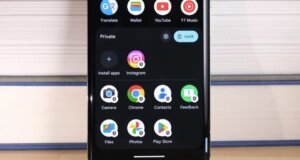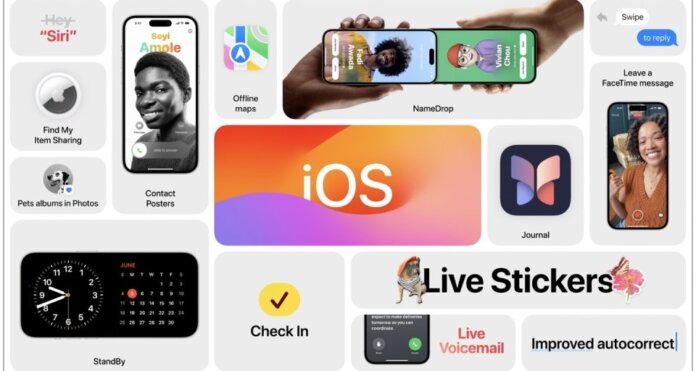Currently, the text “is dominated” in the market is noted by two smartphone operating systems: Android and iOS. But ten years ago, the situation was different, and several companies fought for the love of consumers. This article will recall all the critical smartphone operating systems and their distinctive features. What types of OS are there for smartphones?
Android

Let’s start with the most popular and widespread mobile OS – Android. The brainchild of one of the world’s leading IT companies, Google, began actively conquering the market since its launch in 2008. By 2014, “Android has been installed.” on 86% of mobile devices. Its popularity is due, first of all, to its flexibility and openness. What makes Android so attractive?
- Freedom of action: In Android, users can customize the interface to their taste. Obtaining root rights with the necessary knowledge opens up unlimited possibilities for working with the system.
- Huge application base: No other operating system has as many applications as Android. Games, text editors, file managers, and video tools are only a tiny part of the wealth of software. If you use Android, you will not experience a shortage of software.
- Regular updates: Some may consider this a drawback, but Google’s active work on fixing bugs (yes, many of them) is a positive. Also, applications quickly adapt to new versions of the OS, which practically eliminates compatibility issues.

FLaws:
- Openness of the system: This point is both an advantage and a disadvantage. Although Android can be installed on any device, the lack of well-established interaction between hardware components can lead to freezes and other software force majeure;
- App selection : While the abundance of apps is a plus, it does have a downside. Some software is not properly vetted by Google Play, which leads to an abundance of viral content in the store;
- Complex settings: This point is also controversial. Some users appreciate Android for its ability to customize and personalize, but this leads to difficulty in mastering the OS. The abundance of buttons, sliders and parameters sometimes discourages the desire to understand.
In conclusion, Android is a somewhat controversial operating system but the most popular mobile OS. Almost all of its advantages can also be disadvantages. There is no clear opinion here—everything depends on personal preferences.
iOS

- Optimization: iOS is perfectly adapted to Apple devices, which justifies the developers’ decision to close it and use it only on their gadgets. Stability and high performance are the unconditional advantages of this OS.
- Design: Whatever opponents of Apple gadgets say, iOS has an attractive design. Moreover, the OS has set a new vector in the UI design of other mobile systems. The interface is intuitive and terse, and everything is done with taste, as Jony Ive, the Apple designer, loved.
- Simplicity: The iOS interface is simple and easy to understand. A person can easily set up the system.

Flaws:
- Closed system: This aspect is both a plus and a minus. The security and stability of the system come at the cost of the inability to adjust the interface and its aspects.
- Selection of applications: The App Store has many fewer applications than Google Play. Although it has all the necessary programs, many of them are paid. However, all content is checked before publication, guaranteeing that your iPhone will not be infected with malware.
- Limited choice of devices: If you prefer iOS, you’ll have to buy an iPhone – there are no other alternatives.
To summarize, iOS has no objective disadvantages, but many subjective ones exist. It all comes down to personal preferences. The closed nature of the system can delight some and repel others. The limited app store is similar. For some, this is an opportunity to avoid getting lost in a ton of identical software, while others may perceive it as a lack of choice of software.
Windows Phone

While iOS and Android compete for the title of best operating system, and Apple and Google make their OSs more and more similar with each new version, Microsoft goes its way, not trying to copy others. Some users support this approach; others do not understand it—the pros of Windows Phone. What types of OS are there for smartphones?
- Difference from iOS and Android: This is an entirely new system, unlike others. It has an original and memorable interface, which many people liked due to its “tile” design.
- Shared ecosystem with Windows: Microsoft is gradually implementing the concept of a single OS for mobile and desktop devices. Using a Windows PC lets you conveniently link your smartphone and PC, making it easier to work and share data.
- Low system requirements: The OS from Microsoft turned out to be quite “light,” allowing you to avoid needing a large amount of RAM. It works smoothly and stably, even on older devices.
- Security: Windows Phone OS has “been recognized” as one of the most secure systems.

Now about the disadvantages:
Interface: Not everyone likes the “tiled” design, although it can hardly be inconvenient.
Limited selection of applications is objectively the most critical drawback. The Windows store offers few applications, and many users need more programs.
Support: leaves much to be desired. Updates are rare and only sometimes bring significant changes. Moreover, Microsoft plans to stop updating older smartphone models.
The bottom line? Windows Phone gets a lot right, but it will be tough to ignore its shortcomings. Now, let’s look at some less popular operating systems.
Symbian OS

The platform was widespread until 2010, after which it began to be supplanted by Android-based devices. Symbian development eventually ceased in mid-2014.
The Symbian GUI was always based on the original Series 60 (later AVKON) platform. It could be controlled using a regular or mini-QWERTY keyboard. The software was binary and compatible with many versions of Symbian, including the Qt-based third generation.
BlackBerry OS

Designed specifically for BlackBerry smartphones, it is known for its security, multitasking, and compatibility with corporate email infrastructures such as Microsoft Exchange and Lotus Domino. The system supports calendars, tasks, notes, and contacts with BlackBerry Enterprise Server. Other features, such as Messenger, have become critical elements of the OS, allowing instant messaging. What types of OS are there for smartphones?
But now BlackBerry is officially gone. But millions of people still use BB10 and BBOS devices.
MeeGo

MeeGo is an open-source operating system. MeeGo is installed on netbooks, early-generation desktop computers, portable computing and communications devices, and infotainment systems. Its advantages include an intuitive and straightforward interface and good protection against malware. Its disadvantages include a somewhat outdated design. What types of OS are there for smartphones?
Also Read: How to enable Secure Boot in BIOS
Also Read: How to clear cache on Android and iOS


